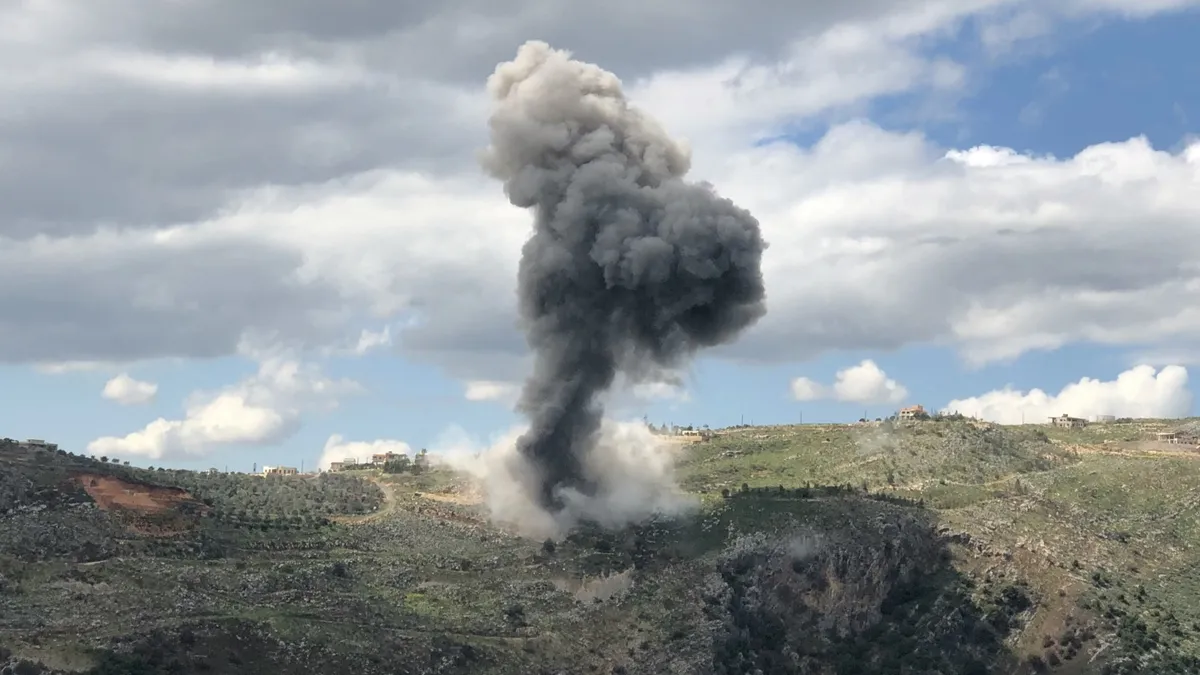
The Israeli military has launched strikes on multiple Hezbollah targets in southern Lebanon following an attack on Saturday morning, where several rockets were fired at northern Israel. The incident has sparked significant concern, particularly after a period of relative calm in the region.
According to reports from Lebanese health officials, two individuals lost their lives, including a child, and several others sustained injuries during this escalation. Sirens were activated in the northern Israeli city of Metula around 7:30 a.m., marking the first significant military engagement in months.
The Israeli military indicated that three rockets were launched from Lebanon, all of which were intercepted before causing any damage. In a surprising move, the Lebanese militant group Hezbollah denied any involvement in the rocket fire. They reaffirmed their commitment to the ceasefire agreement that has been in place since November of the previous year.
In light of these events, Israeli Prime Minister Benjamin Netanyahu and Defense Minister Israel Katz authorized the military to take decisive action in response to the attack. They emphasized that the Lebanese government must be held accountable for any military actions originating from its territory.
In response to the escalating tensions, Lebanese Prime Minister Nawaf Salam issued a warning that renewed military conflict with Israel could potentially plunge Lebanon into a new and catastrophic war. He urged Lebanon's defense minister to implement all necessary measures to assert the state's authority over military and peaceful actions within the region.
The Lebanese army reported that it had discovered and dismantled three primitive rocket launchers, which were allegedly used in the recent attacks. They stated that they are taking all necessary actions to maintain control over the situation in southern Lebanon.
A fragile ceasefire has been in effect between Israel and Hezbollah since late November, following more than a year of intermittent conflict, which culminated in a destructive Israeli ground invasion of Lebanon. Under the terms of this ceasefire, Hezbollah was required to dismantle its military infrastructure in southern Lebanon, while Israeli forces were expected to withdraw from the area.
However, the truce has been tenuous at best. Since November, Israel has conducted nearly daily strikes against what it claims are Hezbollah targets, vowing to continue such actions to prevent the group from rearming. Interestingly, Hezbollah has refrained from retaliating during this period.
Moreover, the Israeli military continues to occupy five locations in southern Lebanon, beyond the agreed timeframe for withdrawal. This ongoing occupation is viewed by the Lebanese government as a violation of the country's sovereignty and contrary to the terms of the ceasefire agreement.
In reaction to the recent hostilities, the United Nations peacekeeping force in Lebanon, known as UNIFIL, expressed alarm at the potential for escalating violence in the region. They issued a statement urging all parties involved to avoid actions that could undermine the progress made toward stability and peace, especially when civilian lives are at stake.
Any further escalation of this volatile situation could have profound and far-reaching consequences for the entire region, underscoring the urgent need for diplomatic solutions and the maintenance of peace.
This report was contributed by Yanal Jabarin from Jerusalem, Ahmed Abuhamda from Cairo, and Jawad Rizkallah from Damascus.